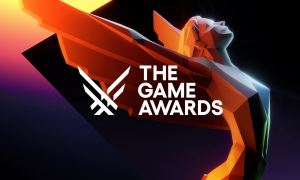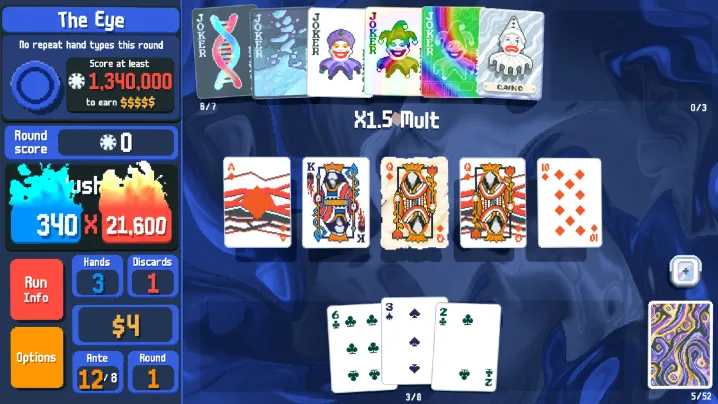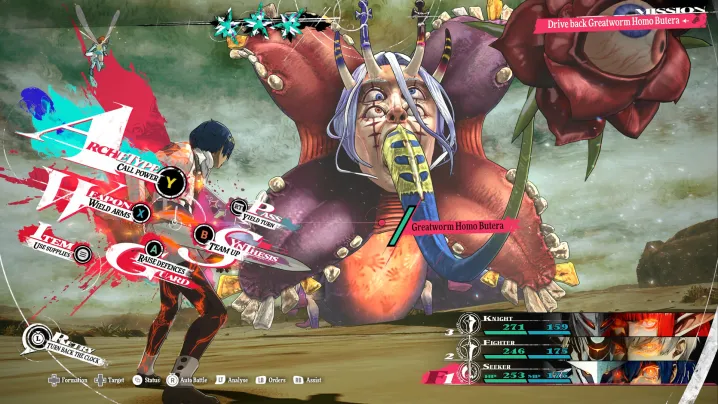
After two predictable years of Game of the Year winners, this year’s Game Awards are set to be a genuine battle. The 2024 ceremony, which airs live on Thursday, December 12, will feature six games duking it out for the same award that Elden Ring and Baldur’s Gate 3 so handily won. What’s exciting about this year’s race (if you actually care about watching awards shows as a spectator sport) is that there’s no clear frontrunner. Any of the games nominated has a realistic chance to win, and that’s perhaps the only time that’s ever happened in the show’s history.
That’s great news if you like drama and terrible news if you’re participating in a friendly betting pool. While I can’t give you an expert answer on who to put on your prediction ballot, I can give you insight into why each game could reasonably win and just as easily lose at Thursday’s big show. Just don’t blame me if your final pick loses; no matter what you select, you can’t say I didn’t warn you! (But if you do get it right, you can thank me, too.)
Astro Bot

Why it could win: There’s a plain and simple answer to this one: Astro Bot is the best reviewed game of the year. It’s not hard to see why, either. Astro Bot is the exact kind of universal crowd pleaser that tends to sweep up at The Game Awards. It’s a work of pure entertainment that does what the best Nintendo games have always accomplished so well, but with a technical sheen that makes it feel as spectacular as any modern PS5 game. Considering how split the voting base will be this year, especially with multiple RPGs that are sure to split votes, Astro Bot may have an easy time gaining consensus thanks to its agreeable platforming and infectious energy.
Why it could lose: Despite looking like a shoe-in on paper, 3D platformers like this don’t exactly have a history of sweeping up at The Game Awards. The honor largely tends to go to lore-filled action RPGs or polished action-adventure games with mature stories. The only exception to that trend was when It Takes Two won in 2021, but even that was a game for older audiences. A true “family game” has never won Game of the Year (Nintendo’s only win is for the mechanically complex The Legend of Zelda: Breath of the Wild) , so Astro Bot will have to work twice as hard to break the mold this year.
Balatro

Why it could win: While it’s the darkest horse in the race, Balatro could win for the same reason as Astro Bot: a crowd pleaser benefiting from a split jury. It’ll be hard to find a voter who didn’t have some sort of Balatro phase this year, getting absolutely sucked into its roguelike poker loop. With its recent mobile launch, which may be the best version of the game, the indie hit is more top of mind than ever. It’s a hit among both players and critics, and that consensus could very well work in its favor.
Why it could lose: If Astro Bot winning would be precedent-breaking, a Balatro victory would shatter the show’s 10-year history. No game like Balatro has even been nominated for Game of the Year, let along had a chance at winning. It’s a minimalist indie roguelike fighting against the five glitziest games released this year. The sad truth of The Game Awards is that the deck is stacked against indie games like this. Narrative-driven games with a spectacular set pieces rule over niche games no matter how much they’ve broken into the mainstream zeitgeist. The fact that it’s nominated at all is a win in my book.
Black Myth: Wukong

Why it could win: Black Myth: Wukong has a lot going in its favor even if it may look like a long shot. Despite its polarizing reception, the people who love this action RPG really love it. That commitment alone might give it enough votes to cross the finish line. More importantly, Wukong is a massive hit with international audiences, and The Game Awards’ voting base isn’t just American. The worldwide jury could very well give it an edge in a competitive race, as could the 10% public fan vote that is used to calculate the winner. That last part is crucial here, as Wukong has perhaps the most vocal fanbase behind it, and one that’s no doubt ready to mobilize in order to get it a win.
Why it could lose: I’m going to use the word unprecedented two more times here, which tells you all you need to know about how rigid and unimaginative The Game Awards winners list is. Wukong‘s issue is a number: 81. That’s its current Metacritic average, and it’s a very low number for a Game Awards Game of the Year. In fact, of all 60+ games that have been up for the honor, it’s the second-lowest-scoring one. While that may sound like a silly reason that it could lose, it’s not a random number. It’s a reflection of a mixed critical consensus from the same jury that’ll be responsible for 90% of the voting data at the show. Western media voters will have to be incredibly divided for it to win.
Elden Ring: Shadow of the Erdtree

Why it could win: Look, let’s just be honest: game critics are total sickos for FromSoftware games. Whether you call it bias or just consensus, the company’s specific breed of action RPG resonates with voters. It’s why both Elden Ring and Sekiro: Shadows Die Twice won this honor previously. While it may be a DLC, the fact of the matter is that Shadow of the Erdtree is every bit as impressive as those games. It is a meaty expansion that almost feels like an Elden Ring sequel. Not only that but it’s the best reviewed DLC of all time and the second-best-reviewed game of the year overall, just behind Astro Bot. Never count out Hidetaka Miyazaki.
Why it could lose: OK, say it with me for this one final time: unprecedented! The simple fact of the matter is that a DLC has never won Game of the Year, let alone be nominated. At the end of the day, this is more of an already great game rather than an expansion that’s fully great on its own merits. That has made it a point of controversy during the build to this year’s show, which may turn voters against it on principle. The reality is that Game Awards voting can be just as political as Oscars or Grammys voting. A jury is not immune from souring on something they otherwise love out of awards race spite. All of that gives Shadow of the Erdtree a significant handicap.
Final Fantasy VII Rebirth

Why it could win: If I had to put my money on any game this year, it would be Final Fantasy VII Rebirth. More than any other nominee, it checks just about every box for The Game Awards’ predictable criteria. A lore-driven action RPG? Check. Narrative focused? Check. A familiar IP? Check. One of the year’s best-reviewed games? Check. This is the exact kind of game that’s engineered to gobble up awards at a show like this. It helps that it’s one of the best Final Fantasy games in ages, too. That accomplishment may net Square Enix its equivalent of a lifetime achievement awards, like when the Oscars finally rewards an auteur that’s managed to never win the big one.
Why it could lose: The longer a game has been released, the more vulnerable it becomes. Backlash is always going to set in with any well-received game, and Rebirth has gotten its fair share of it since its February launch. Both its bloated design and polarizing ending have softened its long-term reception. Will that be enough to turn voters away? Normally it may not, but it’s a problem with the race as tight as it is. With four RPGs in the race, apathy could be a killer.
Metaphor: ReFantazio

Why it could win: More than any game on this list, Metaphor: ReFantazio‘s chance at winning stems from a simple answer: It’s just a great game. Atlus’ excellent RPG is one of the year’s best-reviewed games for a reason. It has a dense narrative, an incredibly satisfying combat system, stellar art direction, and unforgettable music. It’s a buffet of creativity from some of the best RPG makers in the business. If the jury has soured on Rebirth by now, Metaphor is the game that’s most likely to steal away its votes. That might be enough to make it one of the show’s most shocking winners ever.
Why it could lose: Metaphor: ReFantazio doesn’t exactly have an Achilles’ heel, but it doesn’t have a secret weapon either. A race like The Game Awards is about passion, and of all six games nominated for this year’s award, Metaphor doesn’t feel like it has the strongest army backing it. It’s the kind of game that you’ll consistently see in a lot of top 10 year end lists this year, but you likely won’t find it at the very top of most. In any other year, it would have the advantage of being the “cool kid’s pick,” but Balatro occupies that role this year. In a race against four RPGs with huge support bases, its hard to see Metaphor winning that clash of titans.




